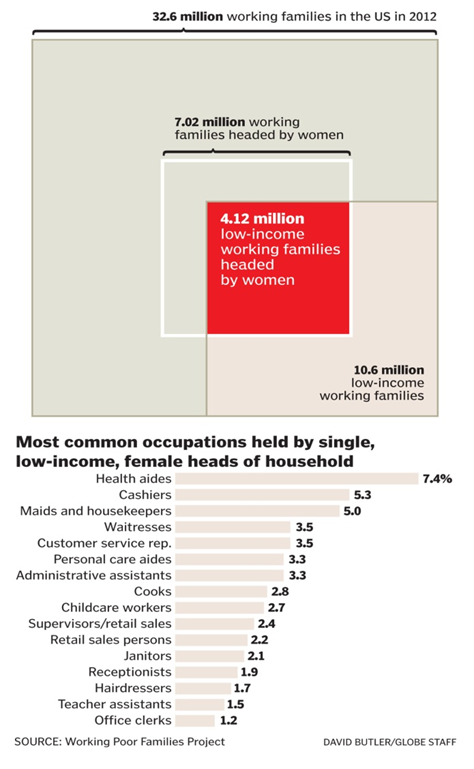Mississippi Low-Income Families Are Increasingly Led By Women
May 12th, 2014
As we celebrate Mother’s Day, it is worth taking a look at how many of Mississippi’s mothers are faring. Mississippi has a high concentration of working poor families headed by women. These single mothers struggle to provide for their families, which often results in children being raised in difficult environments. The amount of families in this position grows every year, and is cause for concern because Mississippi children are already behind the rest of the nation’s children in vital areas such as education and health.
A recent report from the Working Poor Families Project shows that nationwide, 4.1 million low-income families are headed by working mothers. In Mississippi, 67,916 of our 137,776 low-income families are headed by women ranking us 45th in the nation.
There are many factors keeping working mothers in poverty. Not only are households headed by women affected by the wage gap between men and women in the same jobs, there are also barriers specific to low income mothers. Female-headed, low-income families in Mississippi are increasingly finding it hard to secure a job that pays family-sustaining wages because they don’t have the required postsecondary education. Approximately 43 percent of the women heading low-income working families in Mississippi have no postsecondary education.
The top three occupations for mothers in low-income families are health aides, cashiers, and housekeepers or maids. These often do not provide a family-sustaining wage or the benefits that help working mothers stay employed. Other jobs that pay family-sustaining wages without postsecondary education are often in non-traditional fields for women for which they may not have the experience or skills needed to perform those jobs without training.
As a result, many women are in low-skilled, low-wage jobs that do not offer benefits such as health insurance, paid sick leave or, in some occupations, even wage protections. All of these benefits are important, but health insurance and paid sick leave are vital for single parent families.
Our state government can help reduce barriers to good jobs for low-income working families by improving access to postsecondary education and by helping women train in a trade or skill. Mississippi has already made some investment in this area, with the Dropout Recovery Fund that supports community colleges that serve disconnected young adults in need of a high school diploma. Another program along the Gulf Coast,Women in Construction, allows low-income women to gain training in construction trades at no cost and supplements this training with gas cards and a small stipend. Program graduates are able to gain employment that is transformative for their incomes, and allows women to better take care of their families.
Another significant barrier for single mothers is affordable child care, both for women completing education and those who are working. State subsidy programs for child care only scratch the surface of the need for affordable, quality child care. More investments are needed in this area.
Low-income, working poor families do not have to be a foregone conclusion in our state. Mississippi can address the challenges these families face while strengthening our economy and neighborhoods.






